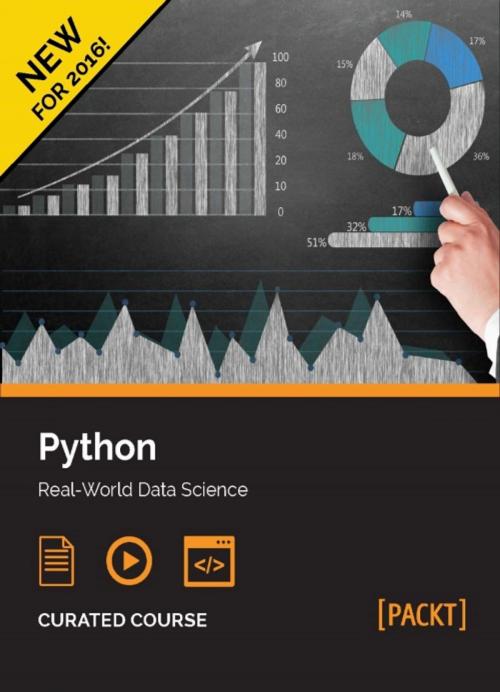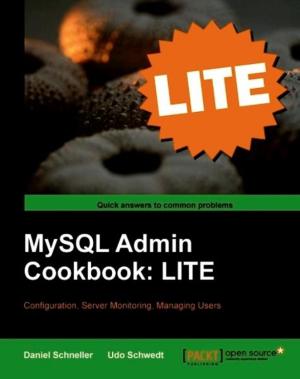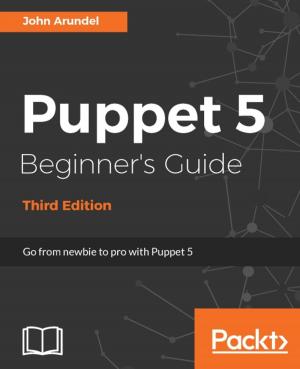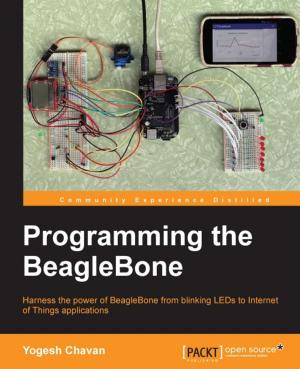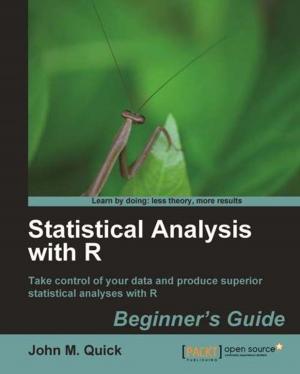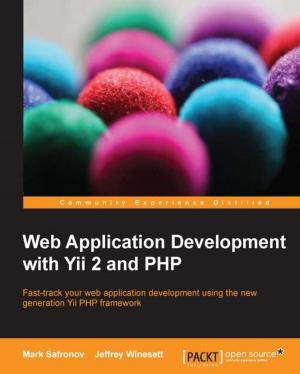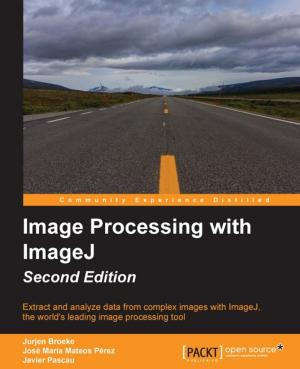Python: Real-World Data Science
Nonfiction, Computers, Database Management, Data Processing, Programming, Programming Languages| Author: | Dusty Phillips, Fabrizio Romano, Phuong Vo.T.H, Martin Czygan, Robert Layton, Sebastian Raschka | ISBN: | 9781786468413 |
| Publisher: | Packt Publishing | Publication: | April 22, 2016 |
| Imprint: | Packt Publishing | Language: | English |
| Author: | Dusty Phillips, Fabrizio Romano, Phuong Vo.T.H, Martin Czygan, Robert Layton, Sebastian Raschka |
| ISBN: | 9781786468413 |
| Publisher: | Packt Publishing |
| Publication: | April 22, 2016 |
| Imprint: | Packt Publishing |
| Language: | English |
Unleash the power of Python and its robust data science capabilities
About This Book
- Unleash the power of Python 3 objects
- Learn to use powerful Python libraries for effective data processing and analysis
- Harness the power of Python to analyze data and create insightful predictive models
- Unlock deeper insights into machine learning with this vital guide to cutting-edge predictive analytics
Who This Book Is For
Entry-level analysts who want to enter in the data science world will find this course very useful to get themselves acquainted with Python's data science capabilities for doing real-world data analysis.
What You Will Learn
- Install and setup Python
- Implement objects in Python by creating classes and defining methods
- Get acquainted with NumPy to use it with arrays and array-oriented computing in data analysis
- Create effective visualizations for presenting your data using Matplotlib
- Process and analyze data using the time series capabilities of pandas
- Interact with different kind of database systems, such as file, disk format, Mongo, and Redis
- Apply data mining concepts to real-world problems
- Compute on big data, including real-time data from the Internet
- Explore how to use different machine learning models to ask different questions of your data
In Detail
The Python: Real-World Data Science course will take you on a journey to become an efficient data science practitioner by thoroughly understanding the key concepts of Python. This learning path is divided into four modules and each module are a mini course in their own right, and as you complete each one, you'll have gained key skills and be ready for the material in the next module.
The course begins with getting your Python fundamentals nailed down. After getting familiar with Python core concepts, it's time that you dive into the field of data science. In the second module, you'll learn how to perform data analysis using Python in a practical and example-driven way. The third module will teach you how to design and develop data mining applications using a variety of datasets, starting with basic classification and affinity analysis to more complex data types including text, images, and graphs. Machine learning and predictive analytics have become the most important approaches to uncover data gold mines. In the final module, we'll discuss the necessary details regarding machine learning concepts, offering intuitive yet informative explanations on how machine learning algorithms work, how to use them, and most importantly, how to avoid the common pitfalls.
Style and approach
This course includes all the resources that will help you jump into the data science field with Python and learn how to make sense of data. The aim is to create a smooth learning path that will teach you how to get started with powerful Python libraries and perform various data science techniques in depth.
Unleash the power of Python and its robust data science capabilities
About This Book
- Unleash the power of Python 3 objects
- Learn to use powerful Python libraries for effective data processing and analysis
- Harness the power of Python to analyze data and create insightful predictive models
- Unlock deeper insights into machine learning with this vital guide to cutting-edge predictive analytics
Who This Book Is For
Entry-level analysts who want to enter in the data science world will find this course very useful to get themselves acquainted with Python's data science capabilities for doing real-world data analysis.
What You Will Learn
- Install and setup Python
- Implement objects in Python by creating classes and defining methods
- Get acquainted with NumPy to use it with arrays and array-oriented computing in data analysis
- Create effective visualizations for presenting your data using Matplotlib
- Process and analyze data using the time series capabilities of pandas
- Interact with different kind of database systems, such as file, disk format, Mongo, and Redis
- Apply data mining concepts to real-world problems
- Compute on big data, including real-time data from the Internet
- Explore how to use different machine learning models to ask different questions of your data
In Detail
The Python: Real-World Data Science course will take you on a journey to become an efficient data science practitioner by thoroughly understanding the key concepts of Python. This learning path is divided into four modules and each module are a mini course in their own right, and as you complete each one, you'll have gained key skills and be ready for the material in the next module.
The course begins with getting your Python fundamentals nailed down. After getting familiar with Python core concepts, it's time that you dive into the field of data science. In the second module, you'll learn how to perform data analysis using Python in a practical and example-driven way. The third module will teach you how to design and develop data mining applications using a variety of datasets, starting with basic classification and affinity analysis to more complex data types including text, images, and graphs. Machine learning and predictive analytics have become the most important approaches to uncover data gold mines. In the final module, we'll discuss the necessary details regarding machine learning concepts, offering intuitive yet informative explanations on how machine learning algorithms work, how to use them, and most importantly, how to avoid the common pitfalls.
Style and approach
This course includes all the resources that will help you jump into the data science field with Python and learn how to make sense of data. The aim is to create a smooth learning path that will teach you how to get started with powerful Python libraries and perform various data science techniques in depth.
